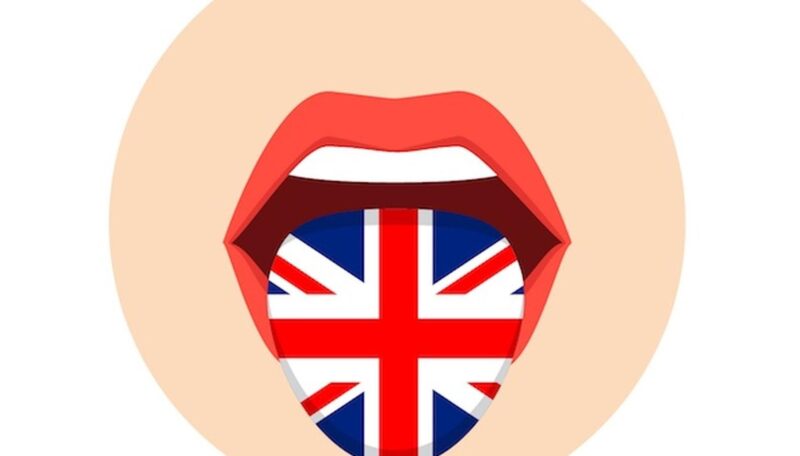It’s quite an interesting fact that most people who learn English speak in the “US-English” version. It should not be a surprise since most of us actually learned it through TV shows, movies, and video games.
If you’re used to American English and want to learn a British accent, it’s a great way to explore the language.
Sure, it might be tough at first but don’t worry. With some help and practice, you can speak with a British accent too.
This guide is here to make it easier for you, with tips and advice to get you sounding like you’re from Britain.
Learn and Understand the Differences

When you start paying attention to British English, the first thing you might notice is the way vowels carry themselves differently. They tend to stretch out a bit longer and feel more open.
Take the word “path,” for example. In British English, the ‘a’ lounges into a more relaxed ‘ah’ sound, quite unlike its American counterpart. Then there’s “privacy,” which in the UK, steps out with a ‘pree’ sound leading the way, setting it apart from the American ‘pry.’
Moving on to consonants, the British accent has a way of softening them, especially the ‘r’ at the end of words. It’s almost as if the ‘r’ decides to step back, letting the other sounds have their moment.
So, when a Brit says “water,” it ends more gently as ‘waw-tuh,’ and the ‘t’ in “butter” doesn’t blend into the background but stands out with a sharper, more pronounced click.
In British English, the word stress moves to its own beat. It changes the tune of familiar words. Take “advertisement” for example. In British English, it’s ‘ad-VER-tis-ment,’ quite different from the American ‘ad-ver-TIZE-ment.’ These slight changes in emphasis give the British accent its unique sound.
The beauty of British and American English is in their distinct words and slang. In the UK, a “lorry” is what Americans call a “truck,” and in London, a “mate” is the same as a “buddy” in New York. These vocabulary differences not only shape the accent but also reflect the culture they come from.
Tips for Practicing

To get a British accent, practice is important. Here’s what you can do:
- Listen and Copy: Watch British shows and movies. Listen to how they speak and try to copy it.
- Vowel Sounds: Practice saying vowels the British way. Like the ‘o’ in “not” should sound more round.
- Soften the ‘t’: In words like “water,” the ‘t’ is softer in British English. Try to say it more gently.
- Record and Compare: Record your voice and compare it with British speakers to see how you can improve.
- Phonetic Practice: Do exercises that help you with British sounds, especially the softer ‘r’ and clearer ‘t’.
- Talk to Brits: If you can, talk to people from Britain. They can give you tips and help you learn.
- Keep Going: Learning an accent takes time. Choose the right method, keep practicing and be patient with yourself.
Common Challenges and How to Overcome Them
Learning a British accent can feel like a challenge, but it’s one you can overcome. Here’s a friendly guide to help you along:
- Vowel Sounds: British vowels can be subtle. To get them right, try comparing words that are close in sound, like “ship” and “sheep.” This will train your ear and your speech.
- Soft ‘R’ Sound: The ‘r’ at the end of words is softer in British English, often not pronounced at all. Practice words like “water” and try not to let your tongue hit the roof of your mouth.
- Consistency: Mixing accents happen, but try to focus on one type of British accent, like Received Pronunciation, to stay consistent.
- Slang and Vocabulary: British slang can be tricky. The best way to learn is by immersion. Watch British shows or listen to British podcasts to get a feel for when and how to use these words.
- Feeling Shy: It’s normal to feel a bit self-conscious when trying out a new accent. Start practicing alone, then with friends or language partners to gain confidence.
It’s all about practice and having fun with it. Before you know it, you’ll be chatting away with a British twang.
Use Additional Resources
If you’re looking to learn a British accent, there’s a lot of help out there.
Start with BBC Learning English for online lessons. They’re great for pronunciation. Language apps can help too. They let you practice your accent anytime.
YouTube has channels that focus on teaching the British accent. They cover everything you need to know. British podcasts are good for listening practice. A great way to get used to the accent.
You can find books that teach British pronunciation, which often come with audio to guide you.
Language exchange sites are useful for talking to native speakers. There is no better solution for a real conversation practice.
Speech software can also be helpful. It compares your accent to native British accents and gives you feedback.
Keep practicing, and you’ll get the hang of it!
I am Brenda Lin, a language expert deeply passionate about teaching and bridging cultural divides. My background in British and Mandarin allows me to make language learning accessible for learners at every level. My teaching philosophy focuses on practicality and engagement, ensuring that every lesson is both significant and enjoyable. I tailor my guidance to meet the unique needs of each learner, aiding them in achieving fluency and a profound appreciation of culture.
Related Posts:
- How To Do A Scottish Accent? Just Follow These Tips
- How to Pronounce Days, Months, and Seasons in Spanish?
- Learn to Count in Spanish - Tips and Tricks on How…
- Top 10 Books for Learning German Language - Improve…
- Learn to Count in German - Tips and Tricks
- Greetings and Goodbyes to Remember - Let's Learn Spanish

